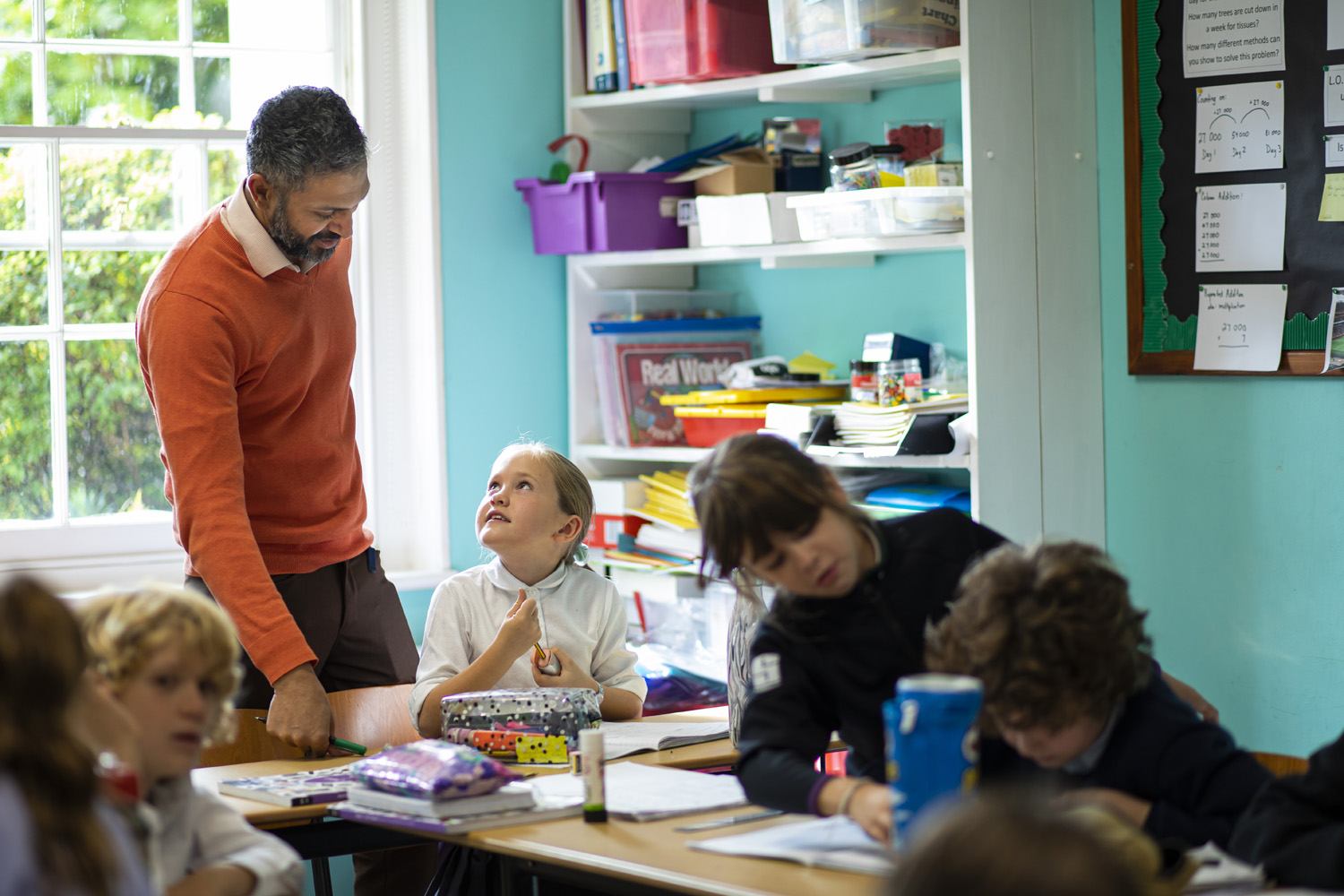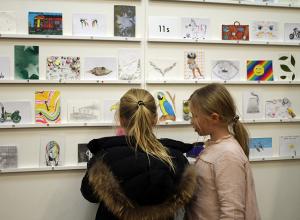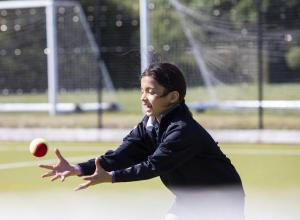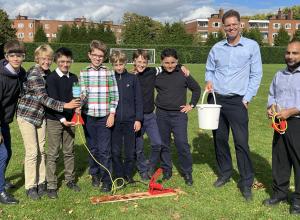
In the latest of his essential blogs about the six ‘prep pillars’, Warren Rodricks explains how rebuilding after a teenage sports setback helped him grasp the value of resilience.
Life seldom doesn't always turn out the way you think it should. As a young boy, growing up in Calgary in Canada, I had but one dream. I wanted to play in the National Hockey League.
Somewhat unexpectedly, as my love for the game grew, so did my skill and by Year 9 I was playing at the highest level of hockey for my age group. After a season filled with ups and downs for both my team and myself, I was regarded as one of the best goaltenders in Calgary for my age. But just as I was daring to dream, life delivered me a disappointment. My next year of hockey was not as successful. My descent from the highest level of hockey began and there was no feel-good bounce-back story. My dream ended with me in my father's car, telling him tearfully I had been cut. He was kind, as he always was, when he told me I would be okay. But at that moment, I found it hard to imagine I ever would be again.
My descent from high level hockey began and there was no feel-good bounce-back story. My dream ended with me in my father's car, telling him tearfully I had been cut
Warren Rodricks
Yet…here I am today. Teaching. A job I love at a school that I love. So, it would seem, my dad was right yet again. Everything would be okay. Still…it didn’t have to turn out that way, did it? So what happened?
The word - and the pillar - of this blog is resilience. It was one of the reasons that I ended up rebounding from such disappointment. I had to show a fair deal of resilience to get on with the things that I needed to get on with. Resilience, it is such an important concept given that we all have challenges to overcome, every single day.
So, what is resilience? I like to think of it as the ability to cope with change. The one constant in the world is that it is always changing and resilience is being able to understand, deal with and adapt to these uncertain surroundings. It’s about understanding that even if we can’t always thrive we are equipped to survive, and sometimes that’s more than good enough.
Resilience is about understanding that even if we can’t always thrive we are equipped to survive, and sometimes that’s more than good enough.
The thing about resilience is that it rarely comes naturally, at least I don’t think it does. When I was at my lowest the last thing I wanted to do was to adapt. It’s very much the same for our students. It’s far easier to lie down and let the sorrow envelop you rather than to fight back for what you want, for what you believe in. Yet…it happens every single day, world wide. At its best, humanity refuses to give up. Earthquakes, floods, accidents, wars. The news is filled with events where it is clear it would be much easier to give up…but we don’t.
So just how does one become resilient? This is the question of greatest importance. At Harrodian, earlier this academic year, we introduced the concept of the 7Cs as first discussed by Dr Kenneth Ginsburg. They are essential in the building of resilience and they are set out below and I will, briefly, attempt to explain each characteristic and their importance to building resilience.
Competence
Perhaps one of the most difficult things for parents and teachers alike is letting a child struggle. I think it is natural for us to want to step in and ‘save’ our students or our children when we fear they will not be able to save themselves. Children need to learn how to get themselves out of a mess so that they can develop the skills and attitudes to understand that they can indeed do this, independently and consistently. It is hard to step back. As a father, I know this. But…as long as the situation is safe, then we do our children a disservice if we act for them. They need to make mistakes and they need to learn from them. They will never be able to stand on their own if we continually offer them a hand.
We want our children to develop the kind of confidence about conquering obstacles that comes from previous experience of conquering obstacles.
We want our students to have a belief in their own abilities. Not the kind of confidence that comes from our ’bigging them up’, but confidence acquired through competence. The kind of confidence about conquering obstacles that comes from previous experience of conquering obstacles. Consistent success in overcoming adversity breeds a self-belief that will benefit them in all sorts of challenges… But we do have to be sure that the challenges we set for them are not beyond their reach. It’s okay to ask them to struggle, but we mustn’t set them up for failure.
Connection
Relationships matter when building resilience. Children need to know they are part of a community, even better, that they are part of many communities. These relationships are vital as they can rely on them for different means of support. These communities help shape a child’s values. The emotions they feel are given importance within their various communities and they realise they can lean on others when needed. Most importantly, they realise they are never, ever alone.
Character
The understanding of what is right and what is wrong is crucial to children being able to bounce back from perceived injustice. Strong character allows children to ‘stick’ to their beliefs in times of uncertainty. It helps guide their actions, even during the most tumultuous of times. If they know what is right or wrong and if they believe in being right, then it becomes much more difficult to be diverted from the path we hope they will choose.
Strong character allows children to ‘stick’ to their beliefs in times of uncertainty. It helps guide their actions, even during the most tumultuous of times.
Contribution
One useful way of dealing with setbacks is to reflect on how vital you are to the happiness and well-being of others, how you ‘contribute’ to their lives. Once you’ve grasped this you'll understand that no matter what the knockback is, you have to stay strong because there are people who rely upon you and need you. Recognising the importance what they contribute to the world leads children to a stronger sense of their own value to others, which in turn fuels their determination to just keep going.
Coping
It is hard to believe, when you are young, that the world won’t end every time you experience failure. Happily, the truth is that most setbacks are ones you can bounce back from. Coping is the ability to realise that things are not that bad and that a bad moment doesn’t have to be a crisis anyway. This insight is a crucial starting point for resilience, as are techniques that help to deal with stress such as taking a moment or two before responding, mindful meditation or creating a list of mini-steps to act upon. I like to think of coping as a plan for when things don’t go as planned.
Coping is the ability to realise that things are not that bad and that a bad moment doesn’t have to be a crisis anyway. This insight is a crucial starting point for resilience...
Control
Perhaps one the most difficult thing to realise is just how much control we have over our lives. How we act, how we treat each other, how we respond are all in our control. The realisation that there are elements to their lives that fall firmly within the grasp of their own hands creates active participants rather than helpless victims. The process of making a decision or a choice is empowering and even when these choices do not work out, children learn from the experience and understand what they might do differently next time.
We can choose to give up or we can choose to keep going. We can choose to make excuses or we can choose to find a way.
At Harrodian, we believe very much that each of the pillars is a choice. We choose the person we want to be. This is true of resilience. We can choose to give up or we can choose to keep going. We can choose to make excuses or we can choose to find a way. It may not be an easy choice, but it is, even in the most challenging of circumstances, our choice.

Warren Rodricks is Head of Lower Prep Maths. He welcomes feedback to this blog at website@harrodian.com







